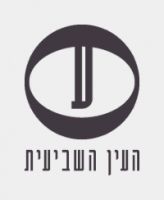On March 2, Israeli voters will go out to cast their ballots for the third time in the span of a year. Once again, social media networks like Facebook, WhatsApp, Twitter and Instagram serve as effective and powerful tools for campaigning, for motivating citizens to go out and vote — but also for political manipulation.
Over the past several weeks, we at The Seventh Eye have been monitoring the campaigns run by Likud, the ruling party in Israel headed by Benjamin Netanyahu, and Blue and White, the party of Netanyahu’s challenger, Benny Gantz. The conclusions are unequivocal: Netanyahu and Likud know how to take advantage of both the benefits and flaws of digital media.
There are two primary ways that Likud reaches voters online. The first is through a series of groups and pages that echo its campaign messages in a synchronized manner on Facebook and WhatsApp. While other political parties also use Facebook as a campaigning platform, the system amplifying the Likud’s messages seems much larger and more effective. It is important to emphasize, however, that these pages and groups are not necessarily funded or controlled by Likud.
The second digital tool is an application that Likud uses, called Elector, which collects personal information on eligible voters in Israel. The party continues to use this app, despite serious data breaches.
From the margins of the internet to mainstream media
Two weeks ago, in a call with Facebook CEO Mark Zuckerberg, Netanyahu complained that the social media giant is biased against Likud supporters. Contrary to that claim, however, Facebook is refusing to take action on pages and groups that spread propaganda in favor of Netanyahu and his party.
Only some of the pages and groups are officially verified according to Facebook’s own regulations. Many of the pages are not verified at all. Some are falsely classified as news pages, publishing information with a deceptive stamp of credibility. The Seventh Eye has found that several of these pages are operated by the same people, who sometimes run multiple Facebook accounts under different profiles. Despite repeated appeals, Facebook has not taken action against these violations.
Based on our research, the messages usually start spreading in WhatsApp groups, of which some senior Likud members are openly a part of. From the margins of social media, these messages make their way to the keyboards of right wing journalists and politicians, all the way to mainstream media. Some of the messages even end up in the prime minister’s speeches. It seems that social media serves as both a testing ground for extreme messages on racism, conspiracy and fake news, as well as a platform to amplify those statements.
In this way, unattributed statements that would have not been considered newsworthy in the past are now part of the news cycle. One great example of that is the shadow campaign of “Stuttering Gantz.”

A video of Gantz stuttering in an interview was turned into a remix that went viral. It inspired a new hobby among some Netanyahu supporters, who have been breaking down every video with the Blue and White chairperson in an attempt to find frames and sound bites that can embarrass him. These clips are distributed over and over again online, in groups and Facebook pages associated with the Likud’s campaign. Sometimes, they are promoted using the same exact wording.
The “Stuttering Gantz” campaign made its way from the social networks to mainstream media, when veteran journalists asked Gantz about him “frequently stumbling through his speech.” This was after Netanyahu imitated Gantz stuttering to a cheering crowd a few weeks ago.
On Tuesday, the campaign officially moved into the spotlight when a new video of Gantz stuttering on different occasions was shared on Netanyahu’s official Facebook page under the title “What is wrong with Gantz?” This time, Gantz responded with a similar video of Netanyahu flubbing his lines.
The ‘Bibi-bot’ as a central tool
Already in April 2019, a reporter with Israel’s Channel 13 mapped out the Facebook pages falsely tagged as “news” that promote and support Likud. When he contacted Facebook for comment, the company refused to cooperate. Our investigation found that not only has this system continued to operate since, but it has also expanded. This time, Facebook, through the Shalom Tel Aviv PR firm that represents it locally, agreed to comment and review our list of almost 100 groups and pages.
In its response, Facebook claimed that paid posts made from politicians’ official pages must be disclosed properly, “according to the transparency in political advertising policy.” However, most of the pages and groups we flagged for review are not official, and the posts are distributed organically (without payment).
Regarding the publication of false information, Facebook stated that they tested a “sample” of the list we sent them and that “no violations of Facebook’s community standards were found.” The company also stressed that “misinformation does not violate our community standards and therefore we do not remove such content from our platform.”
In conclusion, Facebook placed the responsibility of cleaning the network on The Whistle, a fact-checking organization operating under the Israeli financial newspaper Globes. The Whistle serves as an external fact-checker, as Facebook has done in other countries. The project employs a small staff that deals with a flood of information on a daily basis. For instance: the Likud’s mouthpiece on Facebook generates around 400,000 interactions every day in a time of national elections.
In previous election rounds, Likud and Netanyahu relied on Facebook’s chatbot, which has been nicknamed the “Bibi-bot,” as a central tool to their campaign. That activity has not only violated Facebook’s community standards by promoting hateful and racist speech against Arabs and leftists, but also the laws of the state, by breaching Israel’s Elections Law.

Despite repeated violations, Facebook acted against the “Bibi-bot” only on two occasions. In the second, more significant incident, which took place last Election Day, the company only reacted after receiving explicit instruction to do so from Israel’s Central Elections Committee. Even then, the reaction was short-lived.
Serious security breaches could endanger voters
In recent weeks, Haaretz and Channel 12 News revealed that digital security breaches in the Likud’s election management app resulted in a leak of the entire database of Israeli voters. As a result, it is unclear who has obtained access to this sensitive data, which contains the names, home addresses and other personal details of private citizens as well as seniors in the government and defense establishment, including Netanyahu himself and Chief of Staff Aviv Kochavi. On Wednesday, the former head of the Mossad Tamir Pardo said the application is a “real security threat,” and called on those who downloaded it to uninstall it immediately.
The app allows the party’s campaign to collect information on voters, target them with customized messages, and monitor voting rates in real-time. In addition to names and addresses, which were lawfully obtained by the Likud, it appears that the app collected sensitive medical information to try and influence voters, who were also grouped based on their political opinions.
Furthermore, The Seventh Eye revealed that the app that Likud uses shows voting patterns from previous years. This is information that parties are not allowed to gather, and are required to destroy at the end of every election.
On Tuesday, the High Court postponed a petition filed by attorneys Shachar Ben Meir and Itzhak Aviram demanding to stop the continued use of the application. A similar petition filed with the Central Elections Committee was delayed, on the basis that the committee lacks sufficient authority to discuss the issue. The Likud and Elector claim that the petition is political, and say that using the app is legal and does not violate voters’ privacy.
Last weekend, anonymous hackers used the security failure to send text messages supposedly on behalf of Likud, urging people to uninstall the app. “Unfortunately,” the hackers wrote, “the Elector app endangers your safety and as such you must uninstall it immediately.”
It seems that the hackers were merely using the breach to joke about the situation, although other hackers could manipulate the app to severely impact the election’s integrity. A hacker with bad intentions can message Likud voters to say that voting rates are high, and therefore they can take a break. Alternatively, it can stoke fears among voters in certain ballot stations by issuing a false warning that a person suspected of having coronavirus has entered the area.
Likud and Elector were quick to claim that the fake text messages were sent by leftists hackers, and that the security flaws were fixed. However, experts cast strong doubt about whether the app can continue to operate with such grave data protection failures.


